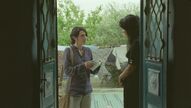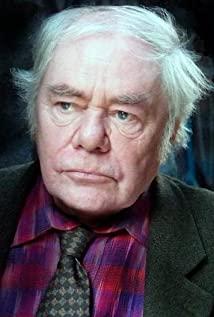This film reminds me of Grebavica, the song of travel translated from Taiwan a few years ago. Not to mention the plot, you can check it online. Grbavica and Incendies have one thing in common. They all want to tell us: Exploring the truth, especially letting the person discover the truth and face the truth, is a good way to treat trauma and continue to live.
I have reservations about this argument.
If the society in which the person lives cannot tolerate the truth, how much therapeutic effect can revealing the truth have? Will it cause new trauma or even new persecution? The twins in the Incendies story were not born in the home country of the Middle East (Lebanon). They are Canadians whose mother tongue is French. Canadian society is of course tolerant of the truth about the life experience of these Middle Eastern immigrants, not even tolerant or not, perhaps it doesn't care at all. What if the twins are still alive in the Middle East and haven't escaped? The relatives of the heroine Nawal Marwan's hometown can't forgive her betrayal, let alone other things.
In the same way, the mother and daughter in the Grabavica story finally reconcile in singing. It's a beautiful picture, but I am afraid it is also a beautiful dream. The director didn't say at all how they could re-adapt to society and adapt to life after receiving the baptism of the truth. They are not and cannot emigrate. Bosnia is neither the United States nor Canada.
As a weapon of aggression, systematic rape is not just to vent animal desires to harm enemy women. Its ultimate target is the enemy's blood, social unity and even ethics. Not only women are traumatized, but the entire national society is. The victims are not only women and children, but also women’s family, clan, township party and society. A reconciliation involving only women and children may not be a real reconciliation. I also doubt how effective a movie that only allows women and children to discover the truth and embrace reconciliation after the curtain ends.
The so-called truth actually refers to history. But history is always written and told by people, and people are subjective, one-sided, and good at lying. Incendies attempted to use the testimony of sacred notaries, witnesses (the memories of prison guards and nurses), the words of authority figures (the dictation of the Muslim leader Chamseddine), the records of the original documents (the records of Nihad in the orphanage), and even the so-called physical Evidence (the tattoo on the heel) to support the accuracy and comprehensiveness of its statement. However, some key areas are still not taken care of. For example, Nihad's identity problem.
The role of Nihad is similar to Lu Wenlong in Yue Quan's biography. The Muslims blew up the Christian orphanage, but took away the orphans, including Nihad, trained them to be killers, and came back to kill the Christians. This method of warfare that allowed the enemy's son to "recognize the thief as the father" was commonly used by ancient nomads. The director of Incendies told us through the Muslim leader Chamseddine: Nihad really "recognized the thief as the father" is very successful, all day long thinking is to become a martyr so that his portrait is posted all over the city for his mother to see. According to Chamseddine, at the time Nihad must have thought that not only he was, but his mother who had never met was also a Muslim. Completely an Islamic identity. Chamseddine went on to tell us: Later, Nihad was captured by Christians. The Christians did not kill Nihad, but converted him into a jailer and changed his name to Abou Tarek.
The question is, how to reform it? How was Nihad’s Islamic identity destroyed and converted to Christian identity? Was his conversion in the style of Lu Wenlong? If it is Lu Wenlong's style, then there must be a Wang Zuo-type character who can say everything from the beginning. What did he say to Nihad? What else does he know? The director did not explain at all. But these things are too important, especially for Nihad: How can he not want to know whether his work in the Southern Prison was a coincidence or a deliberate arrangement by the organization? Do Christians know that Nawal is Nihad's mother?
The truth is often a hornet's nest, which cannot be touched. The more you guess, the more terrifying, the more inferred, the wider the involvement. Dozens of historians have gathered in disputes, and after all, there is no standard answer.
Regardless of history, what kind of face should the truth come to the world? This problem is also annoying. Write it into a textbook to build a memorial? Or apologize publicly? In short, we should give the parties a little psychological preparation. No one can bear the truth of five thunderstorms. The truth that the Incendies gave to Nihad was five thunderstorms, even parcel bombs. The two twins have also been thundered. They seem to be able to stand it, but it only seems to be nothing. Can they really return to a peaceful life in the future? I deeply doubt it. Ignorance may be a kind of happiness. We may not need and can't bear the horrible truth of coming down from the sky and claiming to come to salvation.
Reading and experience make me have to guess: selective forgetting may be the way of life that really benefits the weak. The strong is revenge. History tells us this, and many other movies also tell us this.
View more about Incendies reviews











